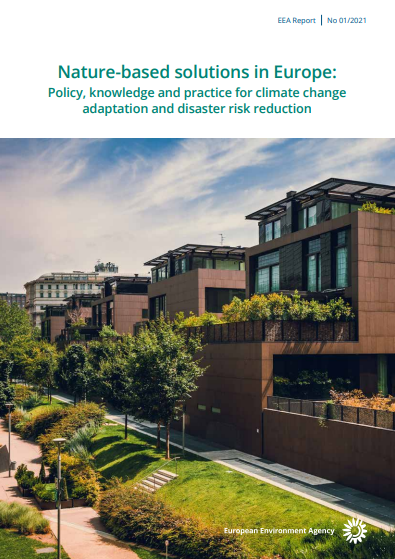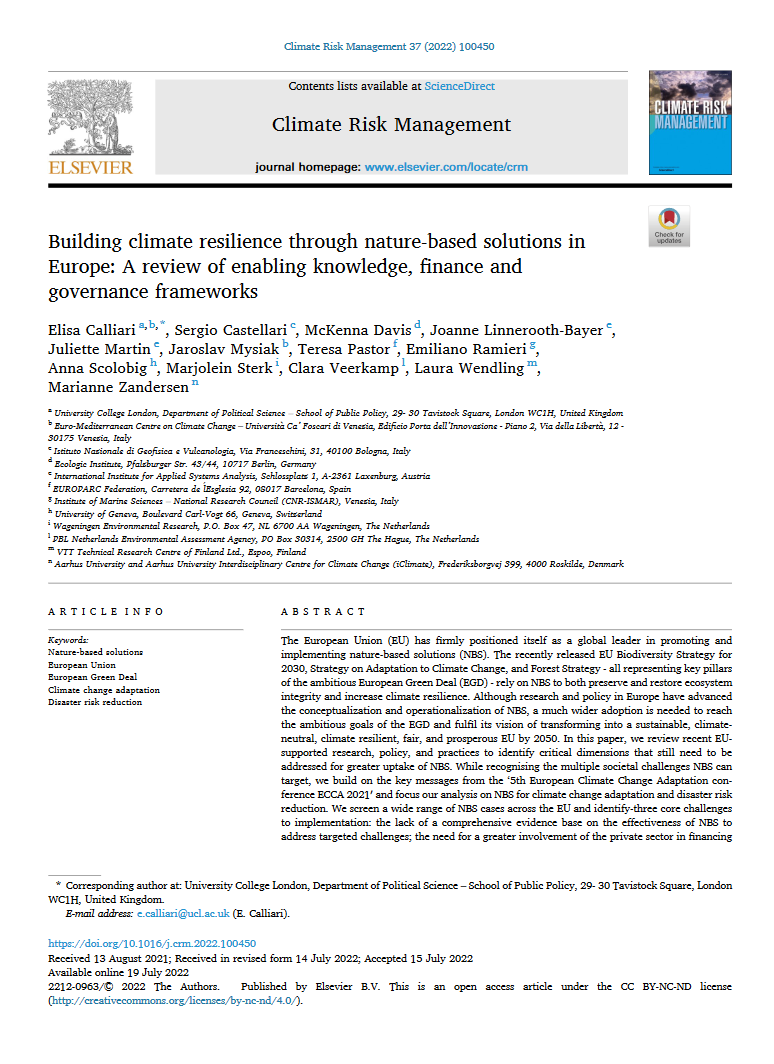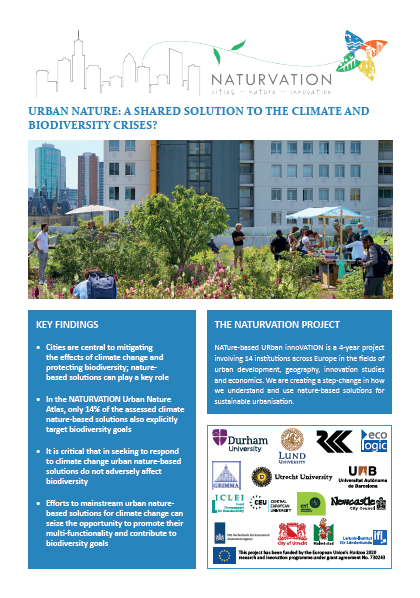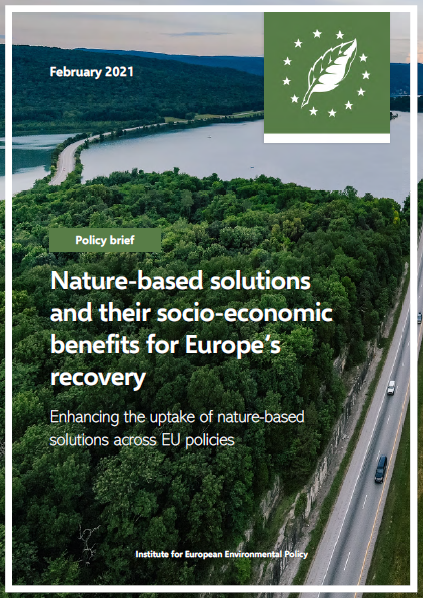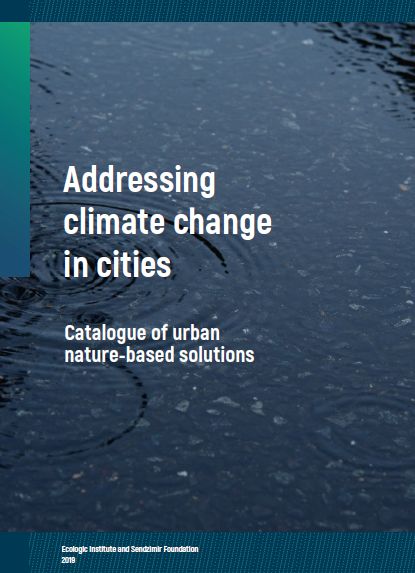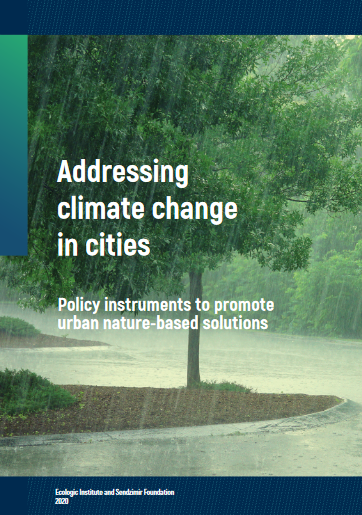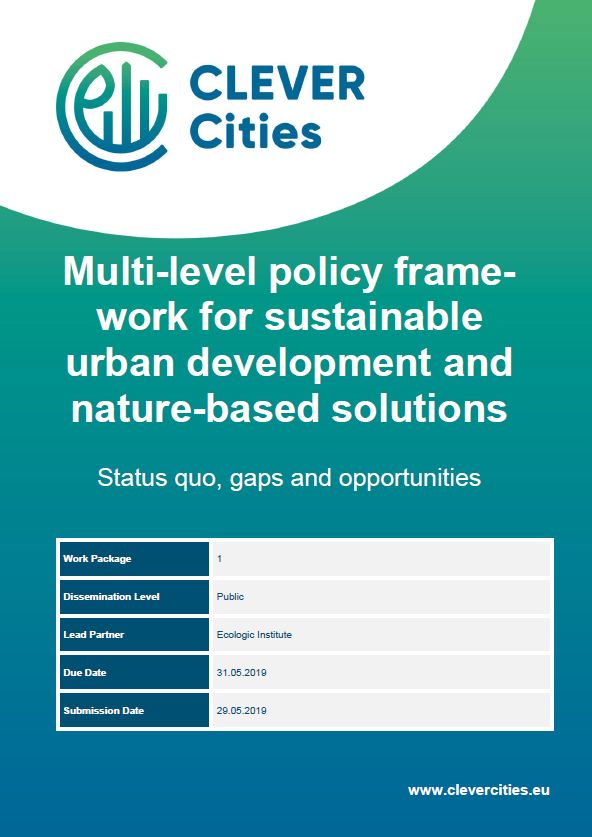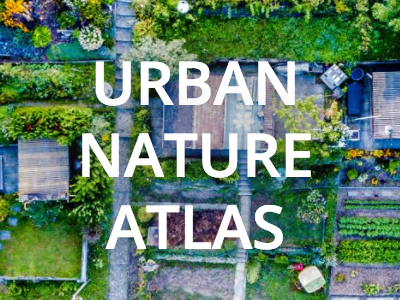Nature-Based Solutions in Europe: Policy, Knowledge and Practice for Climate Change Adaptation and Disaster Risk Reduction
EEA Report No 1/2021
- Publication
- Citation
Castellari,S and Davis, M (2021). “Global and European policy frameworks”. Nature-based solutions in Europe: Policy, knowledge and practice for climate change adaptation and disaster risk reduction. EEA Report No 1/2021.
Climate change, biodiversity loss and degradation of ecosystems are linked and all have devastating consequences for our economic and social stability, health and well-being. Working with nature is increasingly recognised as an efficient way to tackle these growing challenges, according the new European Environment Agency (EEA) report 'Nature-based solutions in Europe: Policy, knowledge and practice for climate change adaptation and disaster risk reduction.'
This EEA report, which Ecologic Institute's McKenna Davis co-authored, provides up-to-date information for policymakers on the how to apply nature-based solutions for climate change adaptation and disaster risk reduction and at the same time making use of multiple societal benefits that these solutions can bring. Drawing on selected examples across Europe, the report shows how impacts of extreme weather and climate-related events are already tackled in this way. It also assesses global and European policies and how nature-based solutions are increasingly being integrated in the efforts to shift towards sustainable development.
How nature can protect us
Many countries are already restoring nature in river valleys and uplands to reduce downstream flooding risks. In coastal regions, natural vegetation helps to stabilise coastlines, while re-forestation is increasingly used for storing carbon. Nature is also brought back into cities by greening urban spaces or reopening old canals or rivers, which increases resilience to heatwaves and brings additional health and wellbeing benefits. Despite their increasing prominence, nature-based solutions could be mainstreamed further, the report notes.
Other key findings of the report
- An EU-wide mapping of existing and potential nature-based solutions can help to identify priority areas for enhancing ecosystem services and addressing climate change and biodiversity loss concerns.
- Agreed standards, quantitative targets, measurable indicators and evaluation tools for nature-based solutions at EU level can help to assess progress, effectiveness and multiple benefits.
- As nature-based solutions depend on healthy ecosystems, which are themselves vulnerable to climate change, their potential for climate change adaptation and disaster risk reduction may decline in the future.
- Stakeholder involvement, dialogue and co-design of tools and measures are key to increase awareness, to resolve potential stakeholders' conflicts and to create social acceptance and demand for nature-based solutions.
- Further implementation of nature-based solutions to climate change adaptation and disaster risk reduction in Europe requires development of technical standards, increased knowledge of potential trade-offs, collaborative governance, capacity building and sufficient funding.
